Bedding materials to avoid − the 3 worst bed sheet materials to choose, and what to shop instead
I asked an expert panel of product testers and textile designers which bedding materials to avoid to get a good night's sleep
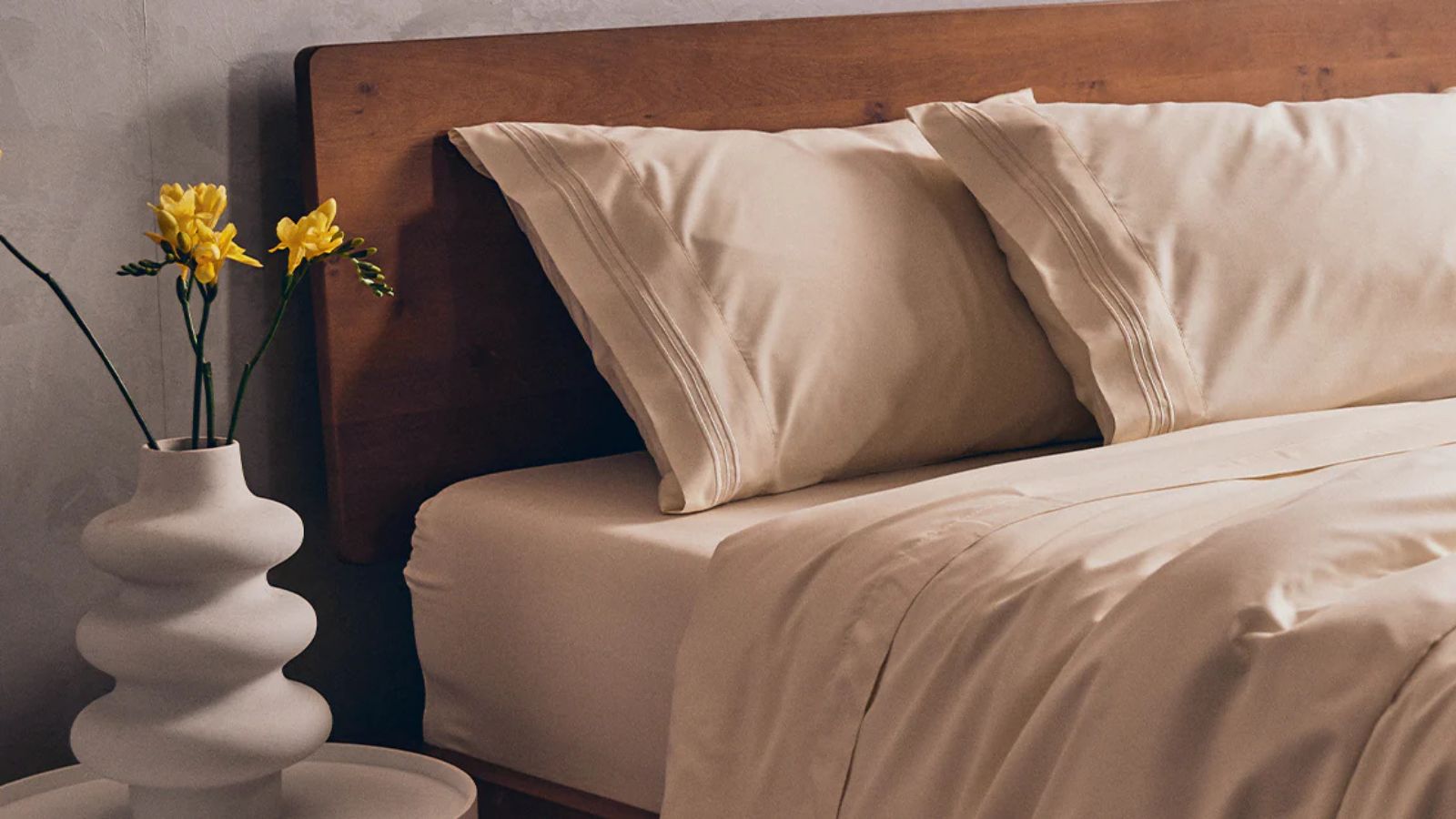

As H&G's resident Sleep Editor, I'm often asked which bedding materials to avoid. My answer varies from person to person, depending on their sleep style and their budget, but there are a few materials that I'll never recommend.
I lead a team of expert testers in the search to find the world's best bed sheets. Together, we've sampled all the major bed sheet types, ranging from cool and crisp cotton percale to smooth and silky bamboo sateen.
I asked my fellow product testers which bedding materials they avoid using in their own homes, and the answer was unanimous: polyester, nylon, and flannel.
Bedding materials to avoid – and what to shop instead
I asked an expert panel of bedding designers and sleep scientists to explain why certain bedding materials are worse for your body and for the environment. To save you time and money searching, I've included alternative sheet sets to shop, instead.
1. Polyester
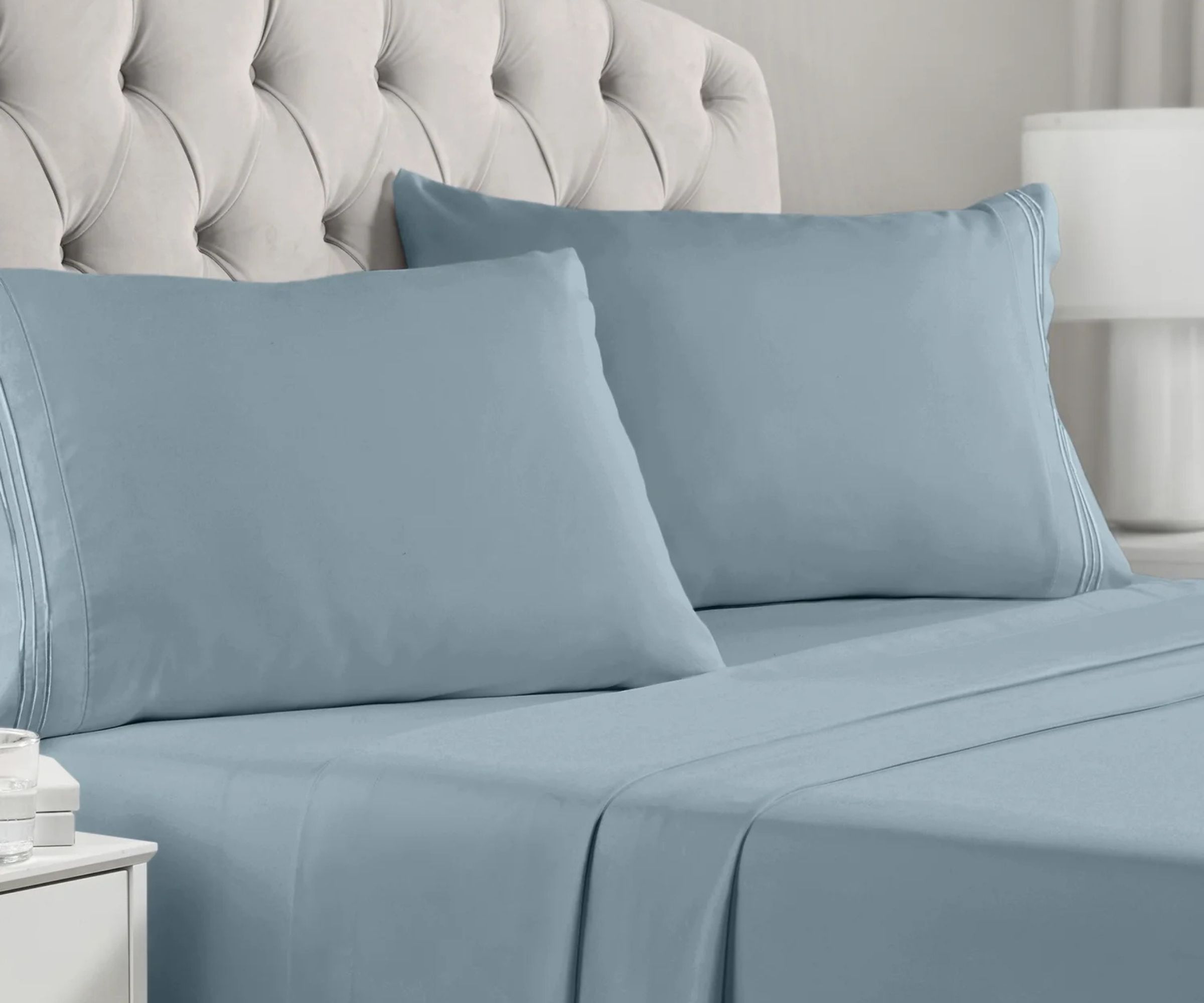
Polyester might be more affordable than other materials, but it looks and feels cheap. Ultimately, the cons outweigh the pros.
- Poor breathability: synthetic fibers, such as polyester, have a tendency to trap heat and moisture. The multi-ply construction of polyester prevents air circulation, which can lead to stuffy, sweaty sheets.
- Propensity to pill: polyester sheets are made from short, thin fibers in a loose weave. In my experience, polyester tends to pill after just a few washes, making my sheets look worn and shabby.
- Environmentally unfriendly: polyester is made from petroleum, which is a non-renewable resource. The production of polyester requires large amounts of energy and emits greenhouse gases.
- Low-quality feel: most polyester sheets I've tried come coated in chemicals. Once washed away, the sheets feel stiff and starchy.
If you're shopping for the best affordable bed sheets, I'd encourage you to rule out polyester and microfiber blends in favor of simple cotton sheets. When you shop at the best places to buy affordable bedding, you can easily find a flat sheet, a fitted sheet, and two pillowcases for less than $100.
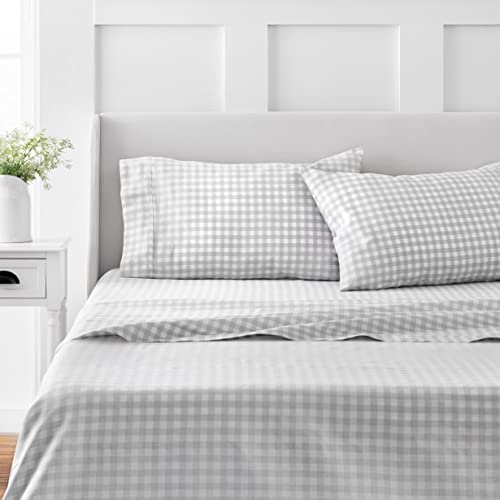
'The Martha Stewart bedding line offers surprisingly soft sheets and cozy comforters at unbeatable prices,' says expert tester Camryn Rabideau. 'Like all the best affordable bedding, these sheets look and feel more expensive than they actually are, and they stand up well to prolonged use.
2. Nylon
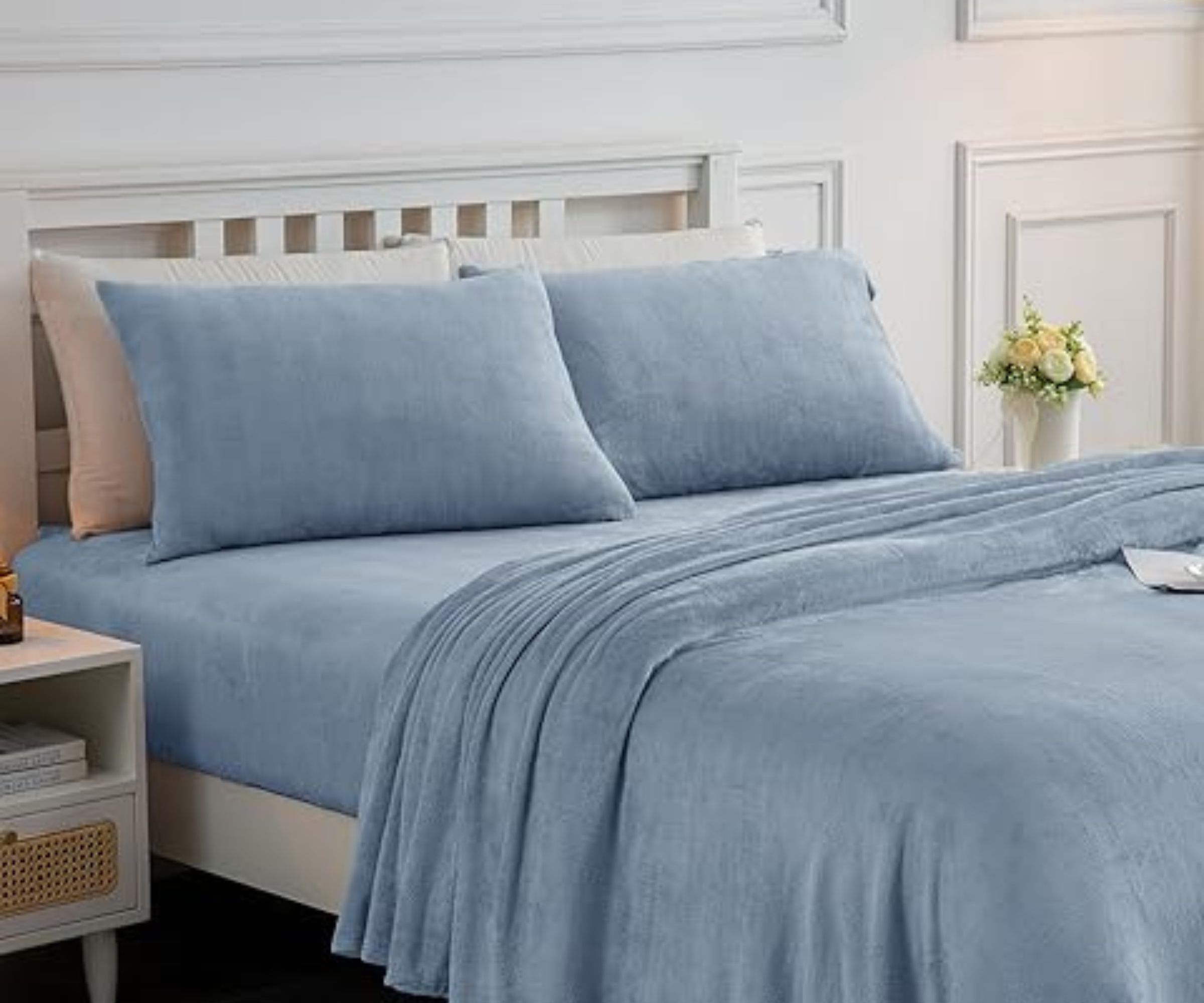
'One material that shouldn't be in bedding is nylon,' says Stephen Light, CEO at Nolah Mattress and a certified sleep science coach. 'Yes, it's durable and tear-resistant, but it's also water-resistant. That means nylon tends to trap heat and moisture inside your sheets, which isn't good for your bed or your body.
When sweat sticks to your sheets, it rubs against your skin, increasing your risk of infections and potentially causing discoloration on your sheets. Nylon is perhaps the worst bed sheet material for hot sleepers.
So, if you're looking for a bed sheet type that's durable, yet breathable, I recommend linen. The best linen sheets are lightweight and breezy, ideal for heatwaves, night sweats, and hot flashes.
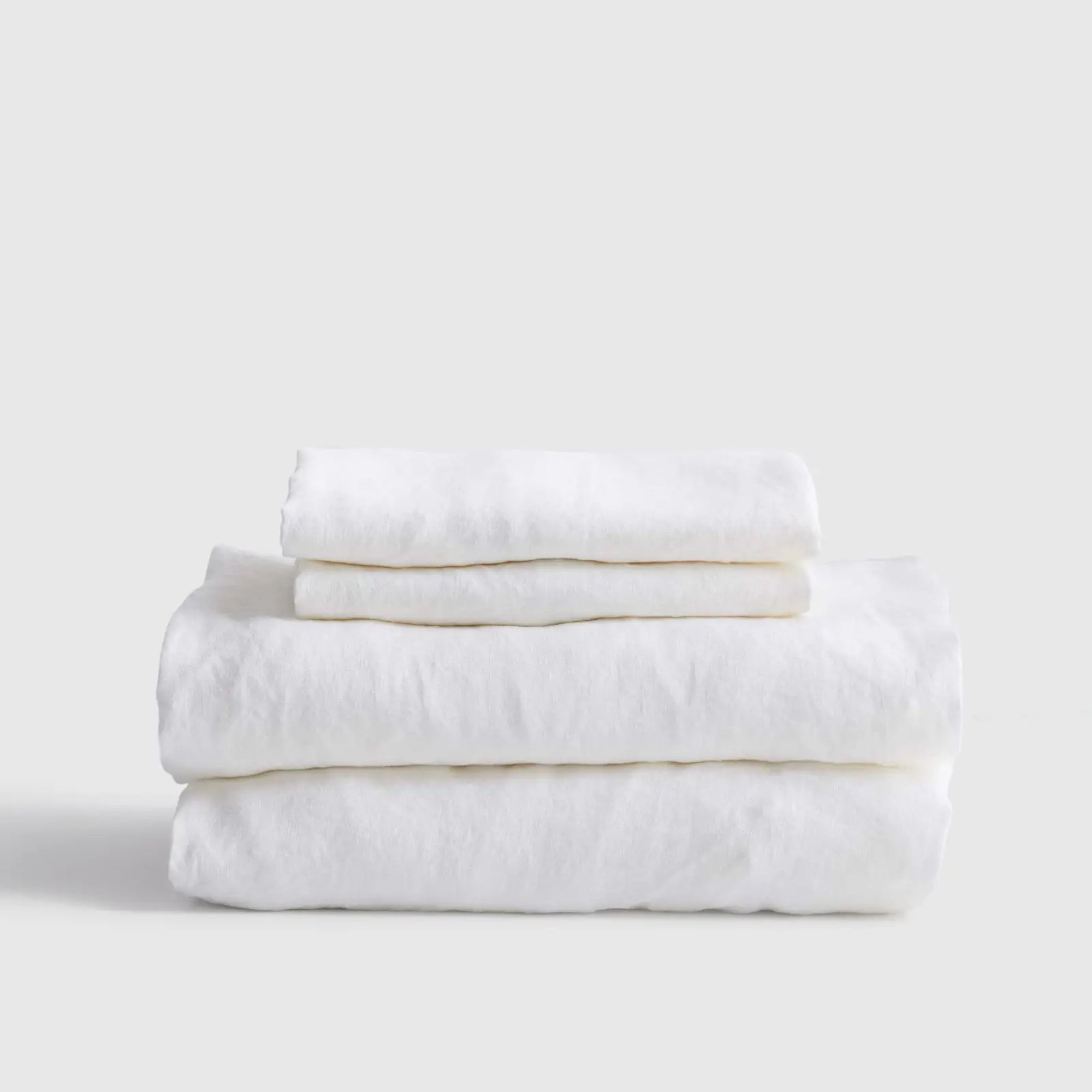
Some of the best linen sheets are seriously expensive: we're talking $400 for a flat sheet, fitted sheet, and two pillowcases. In context, the Quince European Linen Sheet Set is highly affordable. It's also pre-washed for softness and a laid-back, lived-in look.
3. Flannel
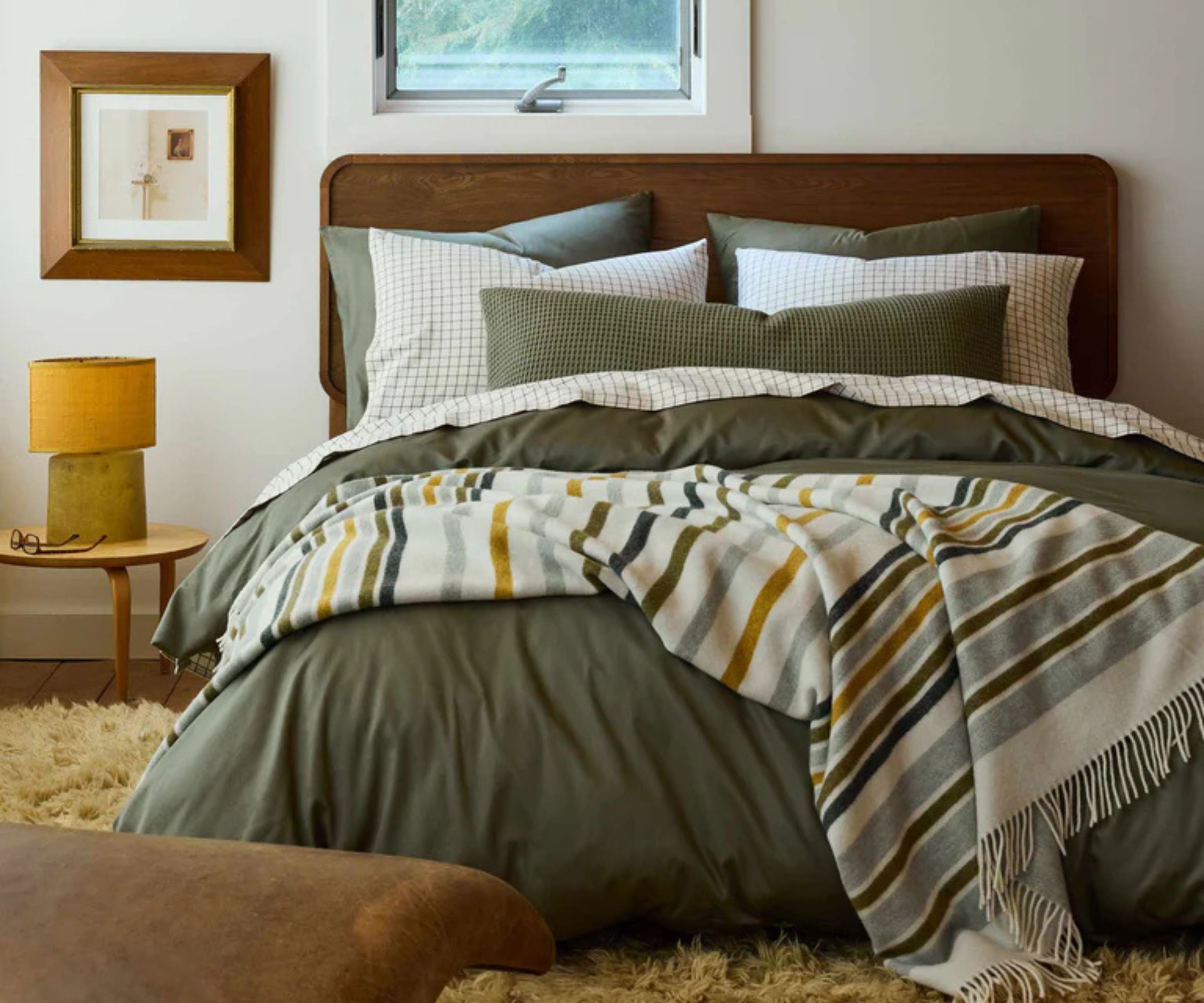
Tony Klespis, certified sleep coach at Mattress Clarity, warns that 'flannel, and other materials with high thread counts, tend to trap heat, because there isn't enough space between the threads for air to flow.'
The best bed sheets should keep you just the right side of warm and dry. Whether you run cool or you live in a colder climate, I recommend cotton sateen. Sateen is more breathable than flannel, but still woven nice and tightly to retain heat and create a silky smooth sheen.
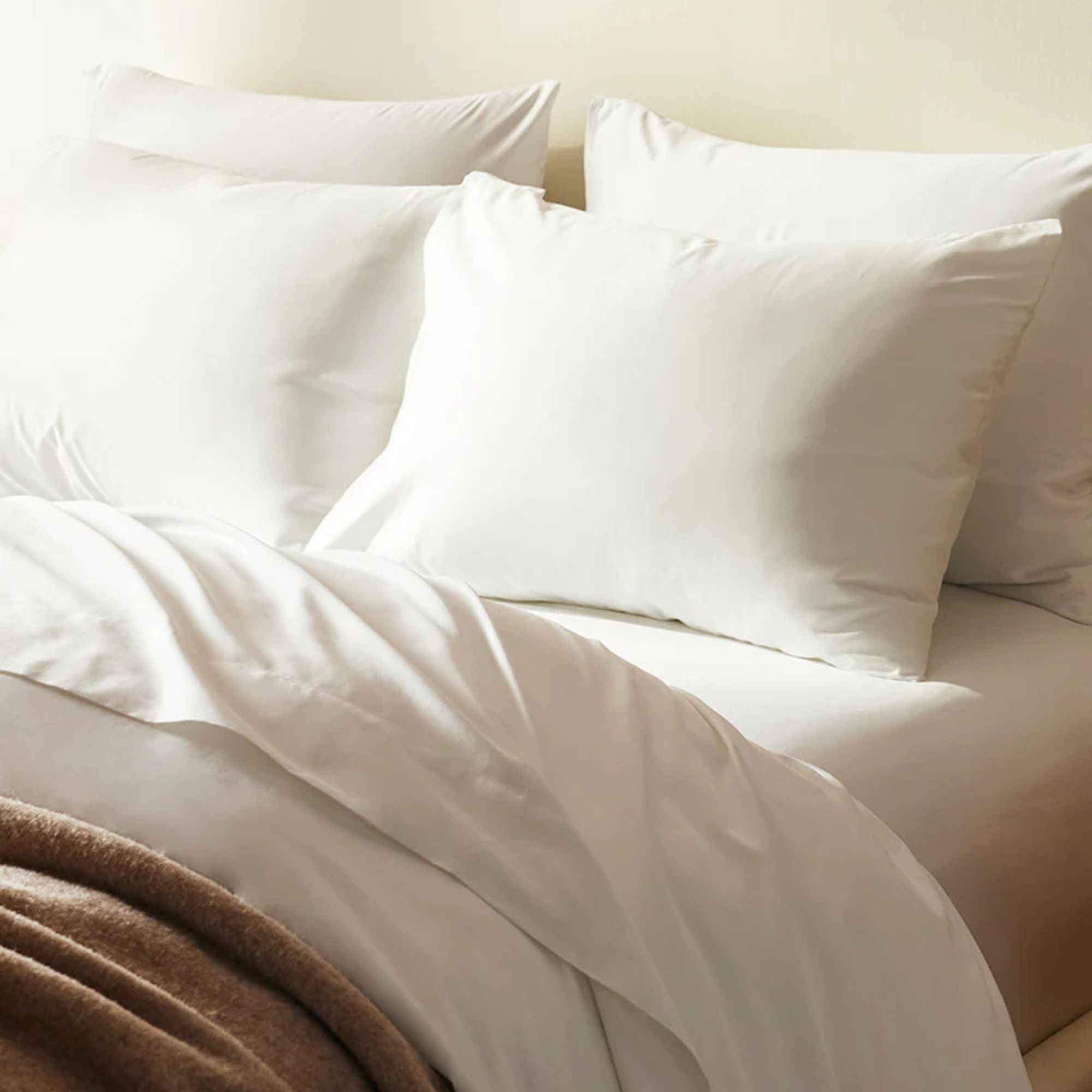
This cotton sateen sheet set has sat atop our 'best bed sheets' piece since our buying guide began. Generations of H&G Sleep Editors (and thousands of Brooklinen customers) appreciate the silky smooth finish of these warming sheets, plus the wide range of colors, prints, and patterns.
Which materials should you choose for a good night's sleep?
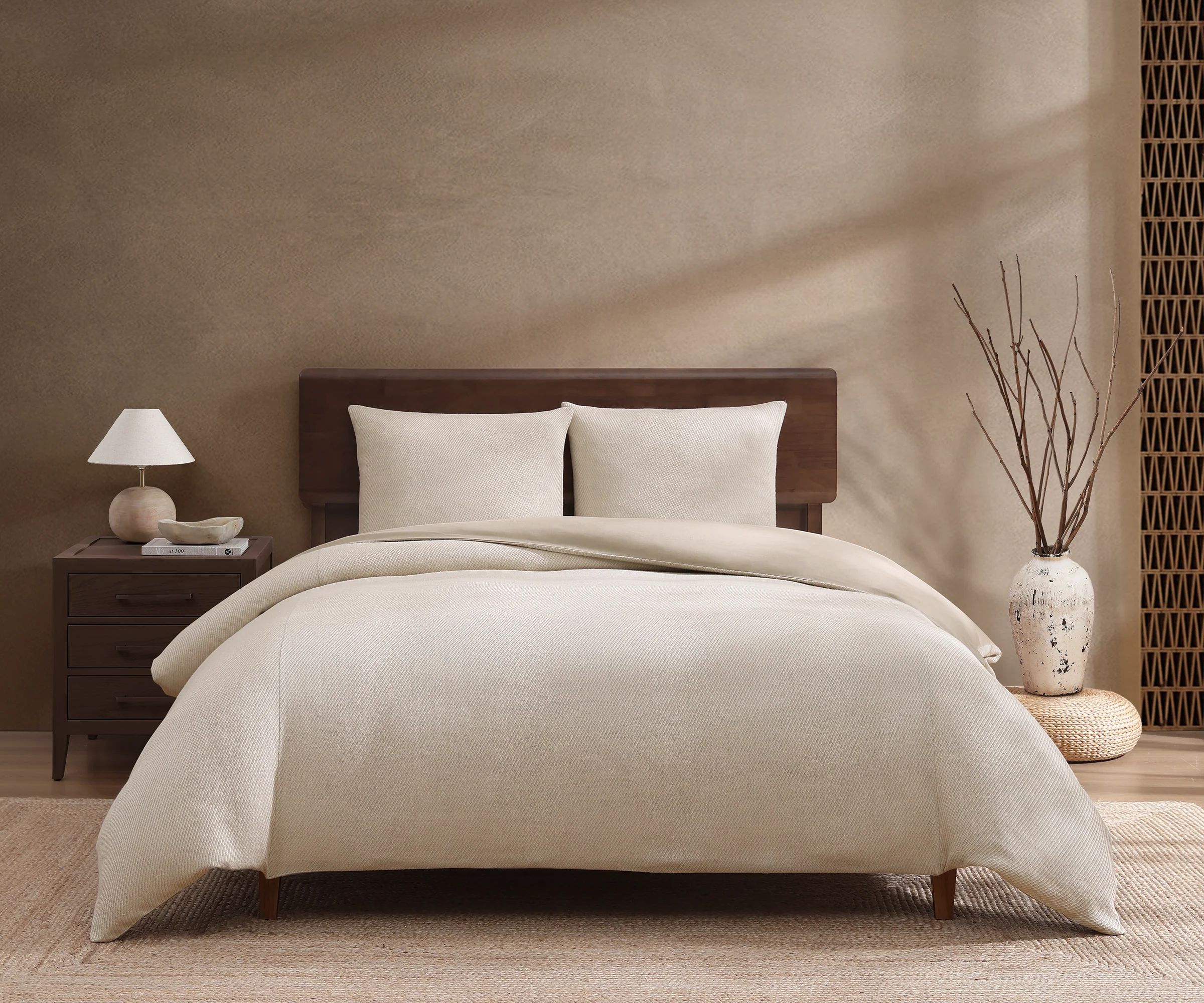
Together with my team of expert testers, I've sampled dozens of sheet sets: some made from microfiber, nylon, and flannel. In my experience, the best bed sheets are made from natural materials for lower environmental impact, with hollow fibers for better breathability.
Cotton bed sheets are a classic for a reason. Try not to focus on thread count so much as the length and the thickness of the cotton staples: that's what gives the sheets their strength. Cotton comes in two different forms. I favor cotton percale, which is crisp and cool, the sort of thing you find in hotels, but you might prefer smooth and silky cotton sateen.
Bamboo bed sheets are great for hot sleepers and eco-conscious shoppers. Naturally antimicrobial and moisture-wicking, bamboo is built to fight your night sweats and bust the bacteria that breed in sweaty, sticky environments. Even if you don't tend to run hot, I recommend a bamboo sheet set for summer nights.
I love the look and feel of linen bed sheets. Like any natural fiber, flax is prone to wrinkling, but I'd encourage you to embrace the creases as part of linen's natural charm. In my experience, linen is one of the most durable materials, able to withstand the wear and tear of long-term use and getting softer with each wash.
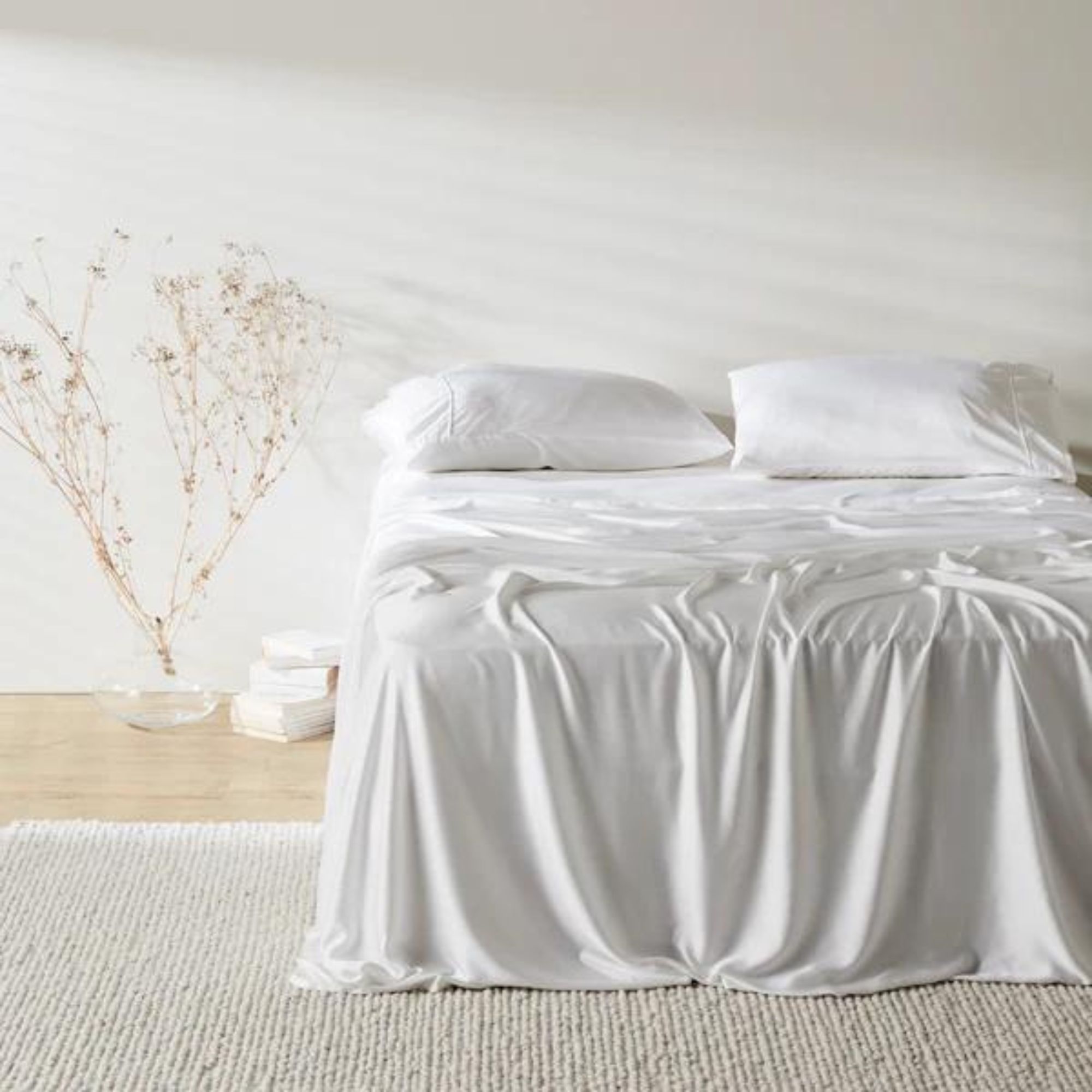
Sizes: Twin, Twin XL, Full, Queen, King, California King
Material: Bamboo lyocell
Colors: 12
+ Eco-friendly
+ Naturally moisture-wicking
- Silky look and feel isn't for everyone
Some bamboo blends incorporate plastics, polyesters, and harsh chemicals that undo some of bamboo's natural goodness. This is not the case at ettitude. Grown using 100% rainwater in a closed-loop system that promotes reuse and recycling, this organic bamboo is finished with food-grade, non-toxic solvents to create that silky-smooth look and feel.
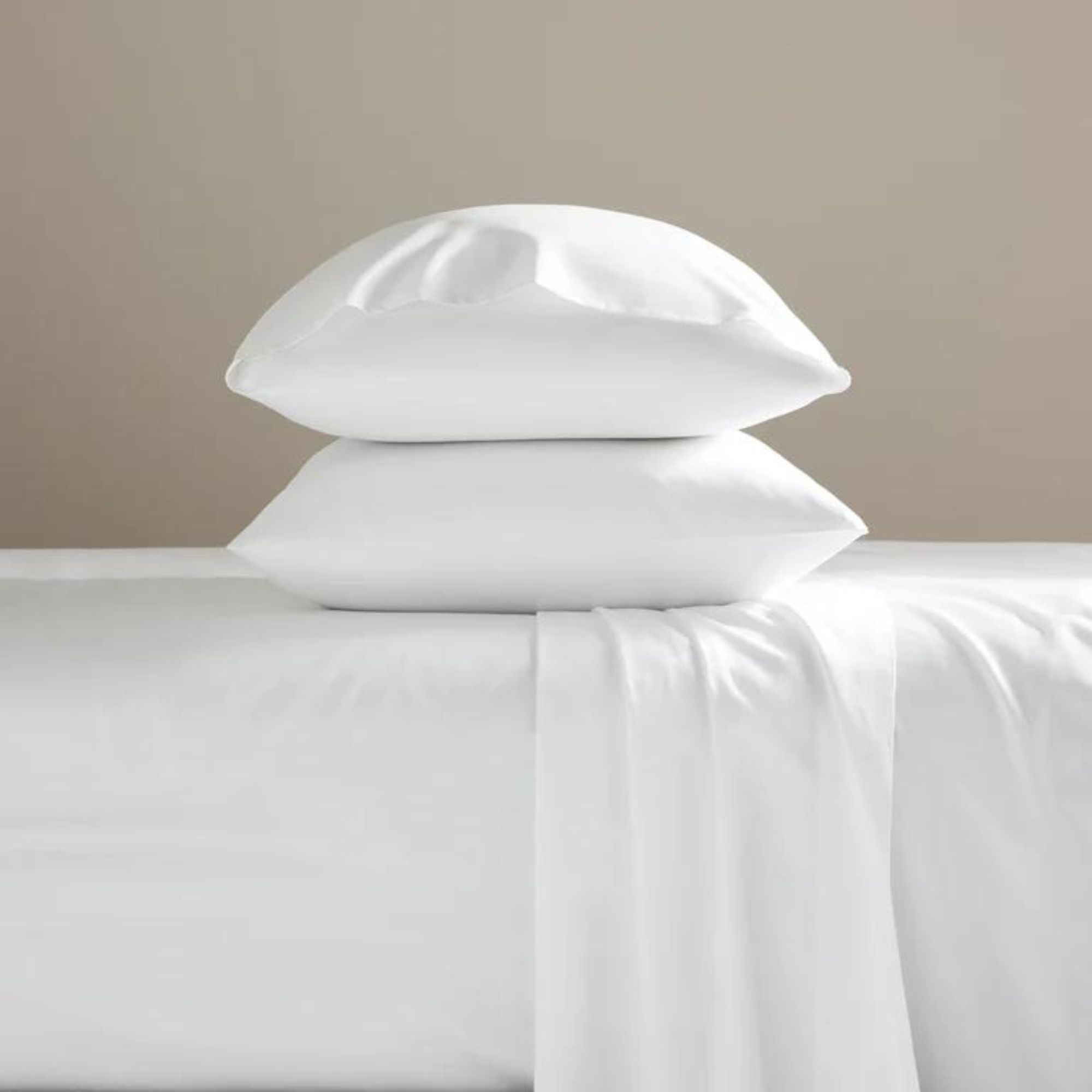
Sizes: Twin, Twin XL, Full, Queen, King, California King
Material: Cotton percale
Colors: 16
+ Crisp and cool
+ Wide range of colors, prints and patterns
- On the more expensive side
I think Brooklinen is one of the best places to buy bedding. Yes, this cotton percale sheet set is more expensive than the sort of thing you'd find in a local home retailer, but it's also much better quality. Out of all the sheet sets in my linen closet, I reach for the Brooklinen Classic Core Sheet Set more often than most. It's crisp, cool, and easy to maintain. I opted for the best white bed sheets, but you could experiment with prints and patterns.
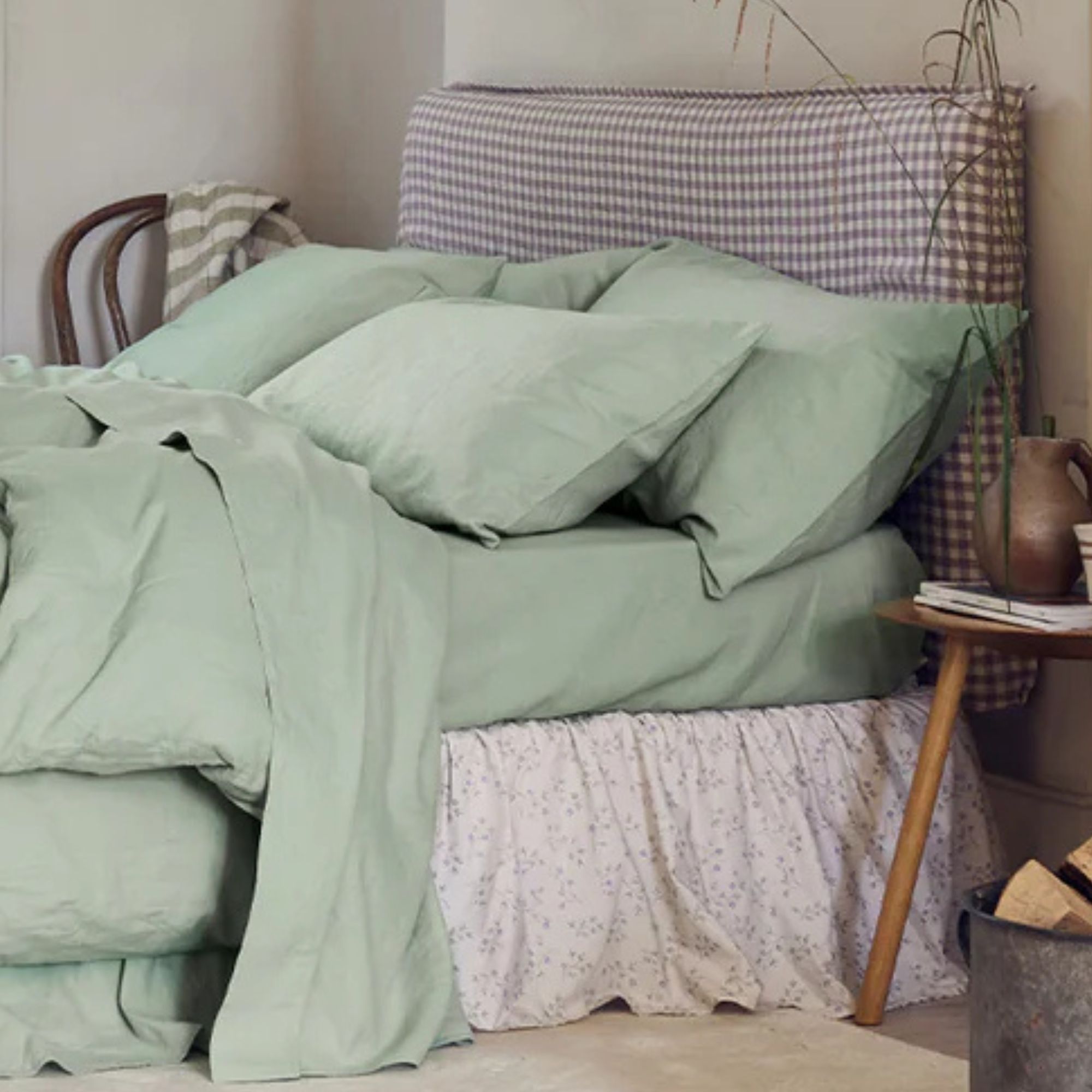
Sizes: Twin, Full, Queen, King, California King
Material: 100% Linen
Colors: 12
+ Breezy and breathable
+ Mix and match to make a bespoke bundle
- Very expensive
The best linen sheets are built to last. I'd rather spend several hundred dollars now on a luxe linen sheet set to last decades than spend several hundred dollars buying and replacing cheap sets of synthetic sheets. I built my own bedding bundle with Piglet in Bed and I relished the freedom to pick out the pieces I wanted in a wide range of colors, prints, and patterns.
FAQs
What are cheap sheets made from?
Most cheap sheets are made from some sort of polyester. You might be tempted to pick up a cheap set of sheets as a spare, but I'd urge you to reconsider. As soon as you start spending $50 or less on sheets, the likelihood increases that you're buying low-quality, high-impact sheeting that won't stand the test of time.
Is polyester toxic to sleep on?
No, polyester isn't toxic for your body, but it will make you sweat more. Opting for more natural materials, including cotton, linen, and bamboo, are better for your body and for the environment.
Now that you've worked out which bedding materials to avoid, it's time to decide which bedding material is best. I've weighed up the pros and cons of each bed sheet type to help you find that material that suits your sleep style and comes in under budget.
Sign up to the Homes & Gardens newsletter
Design expertise in your inbox – from inspiring decorating ideas and beautiful celebrity homes to practical gardening advice and shopping round-ups.

Emilia is our resident sleep writer. She spends her days tracking down the lowest prices on the best mattresses and bedding and spends her nights testing them out from the comfort of her own home. Emilia leads a team of testers across America to find the best mattress for every sleep style, body type, and budget.
Emilia's quest to learn how to sleep better takes her all around the world, from the 3Z mattress factory in Glendale, Arizona to the Hästens headquarters in Köping, Sweden. She's interviewed luxury bedding designers at Shleep and Pure Parima, as well as the Design Manager at IKEA. Before she joined Homes & Gardens, Emilia studied English at the University of Oxford.
-
 5 surprising but brilliant ways to clean with old socks – from perfectly buffing stainless steel to deterring pests naturally and more
5 surprising but brilliant ways to clean with old socks – from perfectly buffing stainless steel to deterring pests naturally and moreTackle dust in tricky corners, clean your mirrors and even banish bad odors with those rogue single socks
By Andy van Terheyden Published
-
 How to grow astilbe – expert advice on cultivating this shade-tolerant flowering perennial
How to grow astilbe – expert advice on cultivating this shade-tolerant flowering perennialShade-tolerant and pest-resistant - astilbe are hardy and tough perennials that can thrive in many settings
By Ellen Wells Published